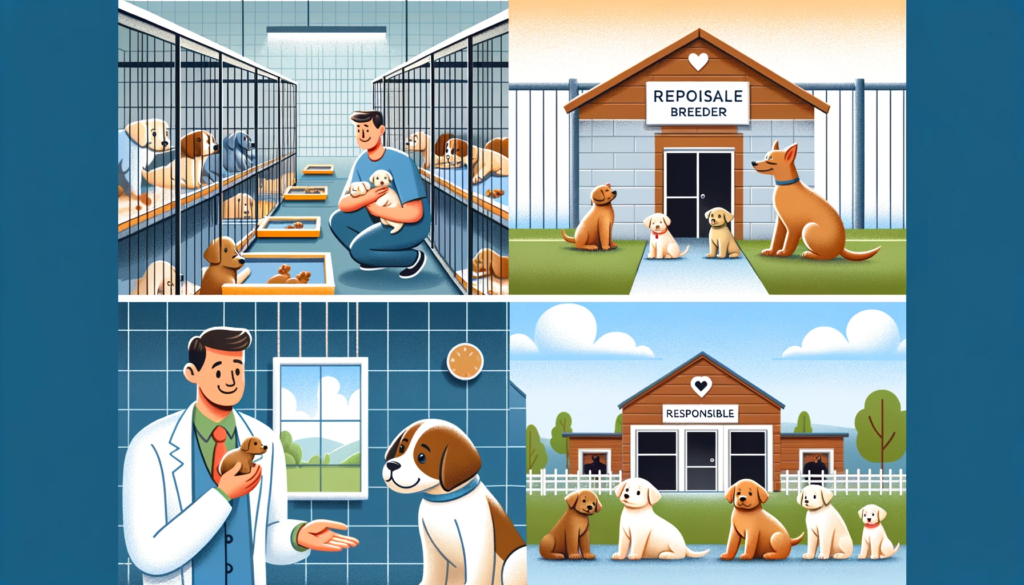
Welcome, future pet parents! Choosing your new best friend is an exciting journey, but it also comes with a handful of significant decisions to make. In this guide, we'll walk you through the essential steps you need to take to select the perfect puppy for you. It's time to get that tail wagging!
List
Defining goals and expectations
Before choosing a puppy, it is important to clearly define your goals and expectations. Your lifestyle, work schedule, living conditions, and experience in keeping animals are of great importance when choosing a suitable pet. If you are an active person who enjoys long walks, a large and energetic breed such as a Labrador or an Australian Shepherd may be ideal. For those who live in an apartment and prefer a quiet lifestyle, a small breed such as a Yorkshire terrier or a Pekingese is better suited.
You should also consider the time you are willing to devote to training and caring for the pet, as well as possible medical needs and expenses. Do not forget about the future character of the dog - some breeds need more socialization and activity, others are more independent and calm.
Evaluation of the puppy's health and genetics
The health of the puppy is a critical factor in the choice. Before purchasing or adopting, it is important to ensure that the puppy is in good physical health and does not suffer from hereditary diseases that are common in certain breeds. Ask the breeder to provide veterinary certificates confirming the health of the puppy and its parents. This may include information about vaccinations, deworming, and genetic test results.
It is also recommended to visit the breeder in person to see the conditions in which the puppy lives and to evaluate its behavior and interaction with its siblings. A healthy puppy should be active, inquisitive, and have a clean coat and clear eyes.
Look out for any signs of abnormal behavior or symptoms of illness, such as coughing, sneezing, discharge from the eyes or nose, skin problems, excessive sleepiness or aggression. It is also important to understand the genetic background of the breed: some breeds are prone to certain diseases, for example, Labradors often suffer from joint problems.

How to choose a breeder
Choosing a responsible breeder or shelter is a key aspect in choosing a puppy. A quality kennel or shelter provides proper care for animals, raises them in healthy conditions and gives them the love and attention they need. This ensures that the puppy develops in a safe and healthy environment.
When choosing a breeder, pay attention to the following:
- Reputation and reviews: Look for breeder reviews online and talk to previous customers.
- Living conditions of animals: The breeder should provide clean, spacious and safe conditions for the puppies.
- Openness to visits: A responsible breeder is always ready to show where and how the puppies live.
- Medical care and documentation: Availability of veterinary records, vaccinations, and information about the puppy's parents.
Shelters can also be a great place to make a new friend. When adopting from a shelter:
- You help reduce the number of homeless animals.
- Often puppies and dogs in shelters already undergo an initial veterinary examination, vaccination and sterilization.

Determine the Best Breed for Your Lifestyle
Just like us humans, every dog breed has its own unique set of characteristics, traits, and needs. These range from their energy levels, need for exercise, and even their social skills. Choosing a breed that harmonizes with your lifestyle can be instrumental in fostering a happy and healthy relationship with your new pup.
Are you an active person who enjoys daily runs or bike rides? Or perhaps you prefer curling up with a good book? Some breeds like Labrador Retrievers or Border Collies are known for their high energy levels and require ample physical activity to keep them healthy and happy. On the other hand, breeds like the Basset Hound or Shih Tzu are more laid-back and require less exercise.
If you have a household bustling with kids, breeds such as Beagles and Boxers are known for their love for children. However, if you're looking for a quiet companion for a more peaceful home, consider breeds like the Basenji or Shiba Inu, known for their reserved demeanor.
Another important factor is grooming. Breeds such as the Poodle or Afghan Hound need regular professional grooming sessions to maintain their luxurious coats, while others like the Dalmatian or Beagle have easy-care coats that require minimal grooming.
It's crucial to consider these factors in relation to your own routine, living conditions, and personal preferences to ensure a seamless fit. Remember, there's no one-size-fits-all when it comes to choosing a breed. It's about finding a furry friend whose needs align well with what you can provide. In doing so, you'll be paving the way for a beautiful and fulfilling friendship with your new pup.

Assess Your Living Situation: Space Matters
How's the view from your pad? Whether it's a sprawling country estate or a cozy city apartment, the space you call home plays a crucial role in the puppy picking process. Keep in mind that those tiny paws will eventually transform into larger footsteps. Especially if you are considering a larger breed, they will require more room to stretch out and let off steam. Apartment dwellers might find a better match in smaller breeds or those known for adapting well to indoor living.
But what about the great outdoors? A securely fenced backyard is like a playground paradise for any pup, providing an open space for them to explore, play, and exercise. However, if that's not a feature of your home, don't lose heart. Many dog breeds adapt well to life without a yard, as long as they get enough exercise in other ways.
Remember, your new furry friend needs to fit not just into your lifestyle but also into your living space. Making the right choice will ensure your pup feels comfortable and secure in their new home. After all, a happy pup leads to a happy pet parent. As they say, home is where the heart is, and there's plenty of room for love in every home, no matter the size.